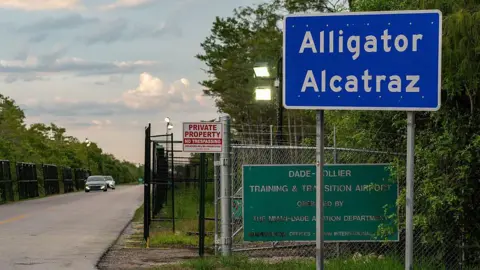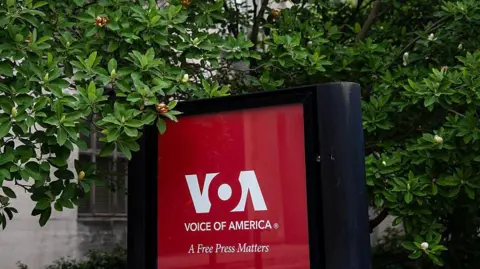The Trump administration has officially ended deportation protections for migrants from Honduras and Nicaragua, marking another significant shift in immigration policy. The decision, issued by the Department of Homeland Security, will take effect in approximately two months, impacting around 72,000 Hondurans and 4,000 Nicaraguans who have benefited from the Temporary Protected Status (T.P.S.) program since its inception in 1999.
This program was initially designed to protect individuals from deportation due to the effects of natural disasters or ongoing conflict. Following the devastation caused by Hurricane Mitch in 1998, many Hondurans and Nicaraguans were granted T.P.S. However, the current administration has criticized the program and suggested that countries have sufficiently recovered to warrant the end of these protections.
Homeland Security Secretary Kristi Noem defended the decision, stating, “It is clear that the Government of Honduras has taken all of the necessary steps to overcome the impacts of Hurricane Mitch, almost 27 years ago.” This assertion was met with skepticism from immigrant advocates, who argue that these individuals have built their lives and communities in the U.S. since being granted T.P.S.
With the recent termination of T.P.S. for some other nations, including Haiti, Venezuela, and Afghanistan, experts predict that this new policy will create instability for migrants and their families. Robyn Barnard from Human Rights First expressed grave concerns about the potential repercussions for employers and communities reliant on these migrants, indicating that many have integrated into society and contributed significantly.
Legal challenges have previously halted attempts to end T.P.S. for other countries, such as Haiti and Venezuela, with federal courts blocking these terminations. As the situation continues to evolve, many await the outcome of these ongoing legal disputes.
This program was initially designed to protect individuals from deportation due to the effects of natural disasters or ongoing conflict. Following the devastation caused by Hurricane Mitch in 1998, many Hondurans and Nicaraguans were granted T.P.S. However, the current administration has criticized the program and suggested that countries have sufficiently recovered to warrant the end of these protections.
Homeland Security Secretary Kristi Noem defended the decision, stating, “It is clear that the Government of Honduras has taken all of the necessary steps to overcome the impacts of Hurricane Mitch, almost 27 years ago.” This assertion was met with skepticism from immigrant advocates, who argue that these individuals have built their lives and communities in the U.S. since being granted T.P.S.
With the recent termination of T.P.S. for some other nations, including Haiti, Venezuela, and Afghanistan, experts predict that this new policy will create instability for migrants and their families. Robyn Barnard from Human Rights First expressed grave concerns about the potential repercussions for employers and communities reliant on these migrants, indicating that many have integrated into society and contributed significantly.
Legal challenges have previously halted attempts to end T.P.S. for other countries, such as Haiti and Venezuela, with federal courts blocking these terminations. As the situation continues to evolve, many await the outcome of these ongoing legal disputes.




















